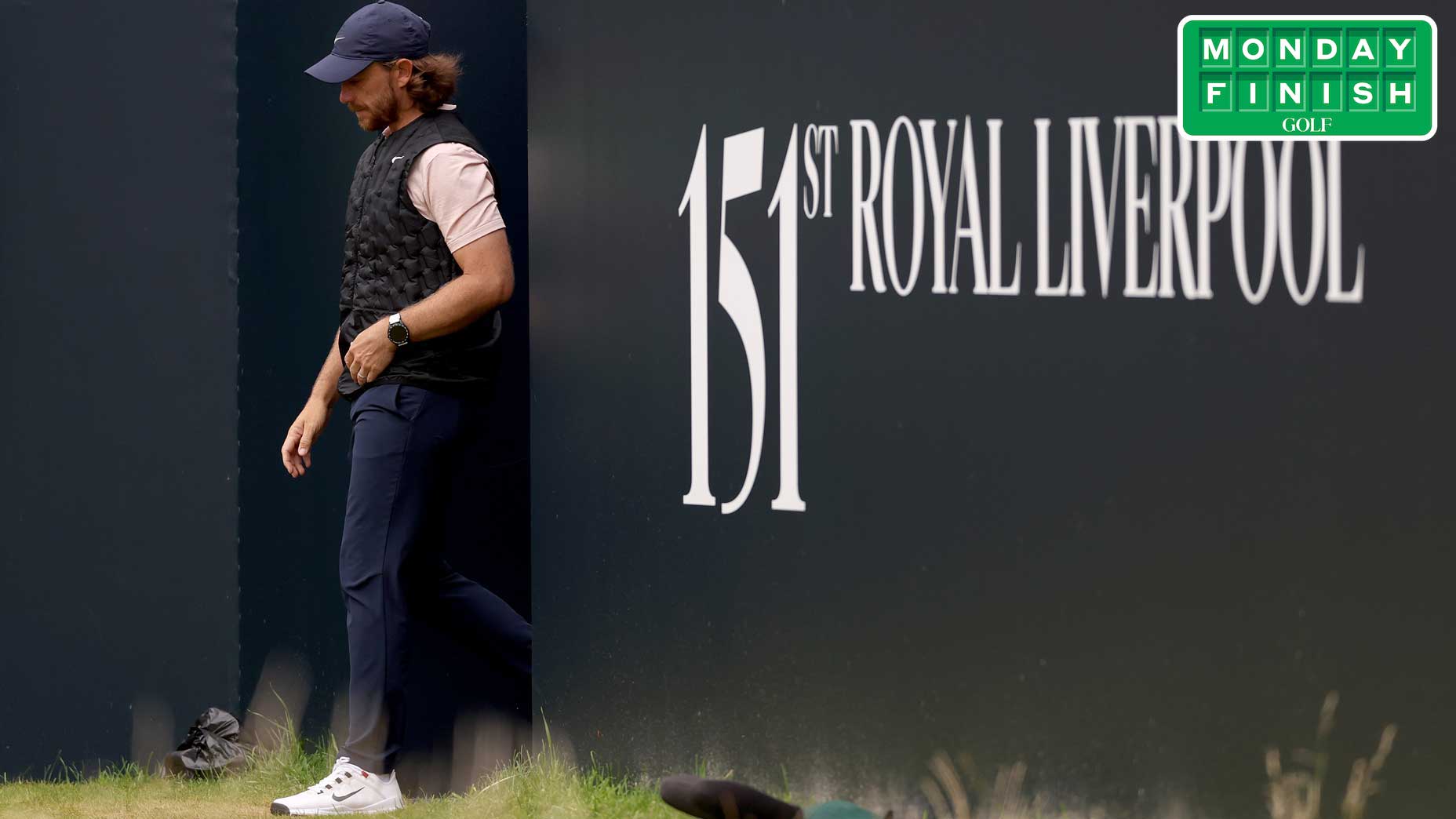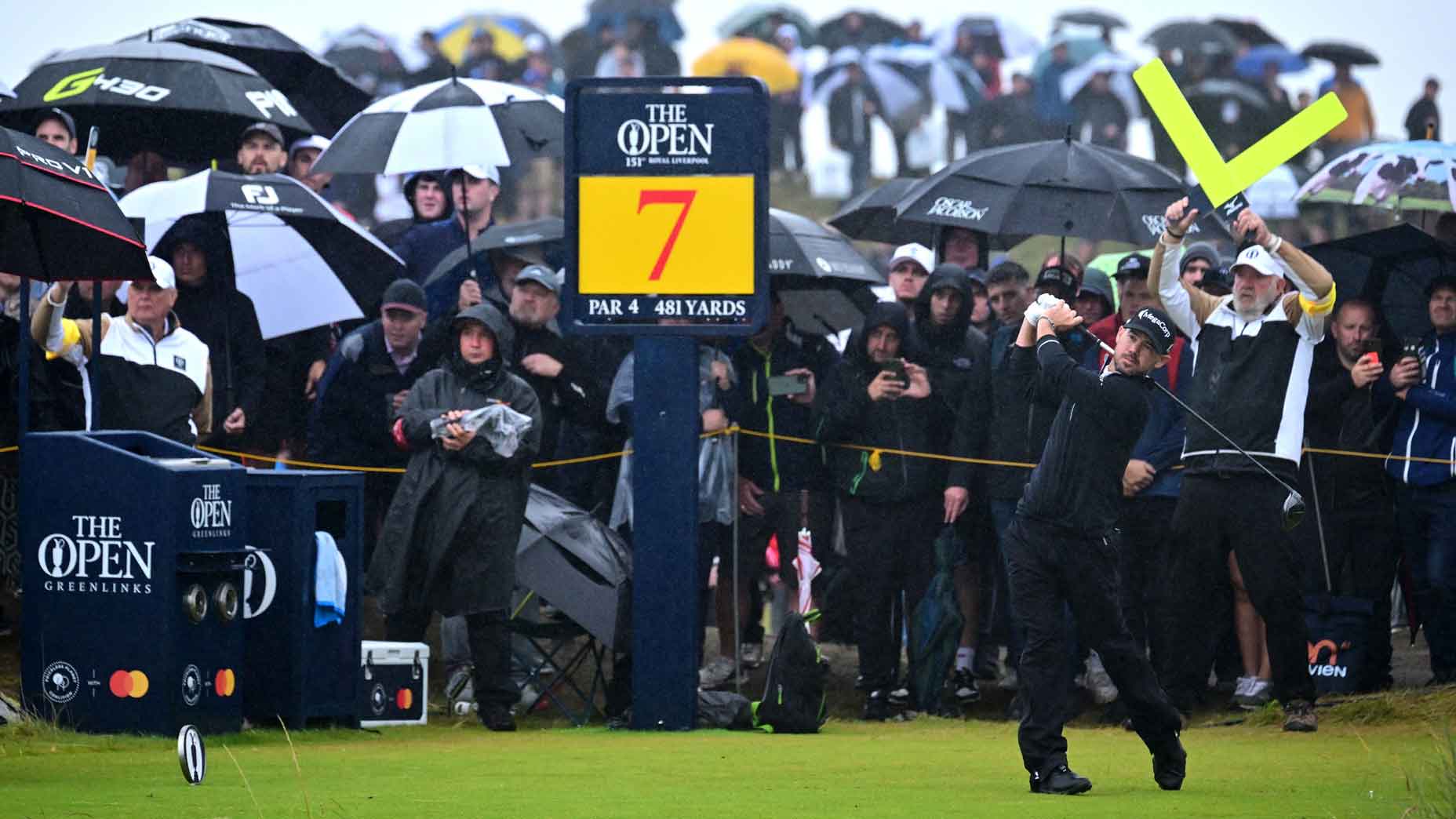Course Rater Confidential: Are blind shots fair, or too gimmicky? What makes a good one?

Collin Morikawa plays his second shot on the 5th hole at Royal St. George's.
Getty Images
GOLF’s Top 100 course panelists are among the most respected and well-traveled course evaluators in the game. They’re also keen to share their opinions. In this GOLF.com series, we’ll unlock their unvarnished views on all questions course-related. The goal is not only to entertain you but also to give you a better understanding of how to understand and appreciate golf course architecture. You can see GOLF’s latest Top 100 Courses in the World ranking here, and our Top 100 Courses in the U.S. here. Meet all of our Top 100 panelists here.
The Open Championship wraps up at Royal St. George’s Sunday, a course that in his pre-tournament press conference Brooks Koepka said had too many blind shots. What do you make of Koepka’s assessment? And, more generally, what do you make of blind shots as a whole? Fair game? Gimmicky? Do you have any criteria for a well-designed blind shot hole? A poorly designed one?
Will Davenport (panelist since 2021; has played 40 of the World Top 100): Blind shots are a perfectly fair part of the game, and I’m not particularly picky about how they present. They present a unique mental challenge, and they add a few moments of hanging suspense to the round as you rise over the crest of the hill. Perhaps I am biased, as my home course in college, The Course at Yale, had more than its share of blind approaches. My criteria for blind shots is generally that they must be naturally mounded (a la the 3rd hole at National Golf Links), and there must be some sort of directional — natural or otherwise — that marks the approximate line. I am particularly partial to directionals with character (read: flags bisecting the green).
Tim Gallant (panelist since 2019; has played 67 of the World Top 100): Clearly Brooks doesn’t like his golf courses to be fun. Because few moments can bring the same anticipation or excitement as when you crest the hill on a blind shot to see just how close (or far) you are from the hole. I enjoy blind holes and shots, and the challenge they present to test one’s ability to pick a line and commit to it without having a visual reference. I actually like when there are NO indications on where the hole is on a blind shot. Is it not more fun to try to line up over the third divot left of the second rock?
Christian Faergemann (panelist since 2013; has played 70 of the World Top 100): Blind shots are a part of the legacy of golf course design. The young tour players somehow do not seem to appreciate this historic part of the game — it’s a shame. The lay of the land dictates the layout of these historic and iconic venues. At RSG, the 4th and the 5th are so special, and here the blind shots play a crucial role in the strategy of the design of the hole. Personally, I like the blind shot at these special courses. Makes you think and commit to the shots and if you think you made the perfect shot swing — who isn’t a bit anxious to see where it actually ended up?
David McLay Kidd (panelist since 2004; has played 60-plus of the World Top 100): Pretty sure every course that hosts The Open is peppered with blind shots! Having played every Open venue I’d agree with Brooks that RSG is unique but not because of the blind shots, it’s what happens when they land. Many of the fairways are crowned and shed balls into the roughs testing not just your golfing skills but your strength of character! As a golf-course designer I build my fair share of blind holes but I try very hard to reward those that give me their faith and drive into what they can assume is safety and reward; if they strategize they get what they deserve!












